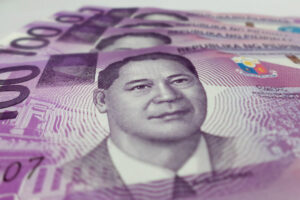GROSS national savings fell for a second year in 2021 to P3.88 trillion at current prices, down 12.4% from a year earlier and well below the pre-pandemic 2019 level of P6.15 trillion, the Philippine Statistics Authority said on Thursday.
The difference between gross national disposable income and the combination of household and government final consumption yields gross national savings. The drawing down of savings reflects the widespread tapping of reserve funds during the pandemic.
Gross national savings were equivalent to 19.3% of gross national income (GNI) in 2021, against 23% and 28.7% in 2020 and 2019, respectively.
Real gross domestic product (GDP) and GNI grew 5.7% and 1.7% respectively in 2021.
At current prices, GDP and GNI increased by 8.1% and 4.1% respectively last year. Household spending rose 8.4% to P14.61 trillion, while government spending grew 10.3% to P3.02 trillion.
Gross national disposable income was P21.51 trillion, up 4.2% in 2021 but below the 2019 level of P22.88 trillion. The indicator was derived by subtracting GNI from the net difference between “current transfers” to and from the rest of the world.
Net disposable income per capita was estimated at P195,193 in 2021, against P189,809 in 2020 and P213,216 in 2019.
Nonfinancial corporations had gross savings of P3.54 trillion, followed by financial institutions at P1.46 trillion. Households, including nonprofit institutions serving households recorded negative savings of P622.23 billion, as did the general government at minus P490.62 billion.
“(T)he pandemic continued to weigh on the country’s gross national savings,” University of Asia and the Pacific Senior Economist Cid L. Terosa said by e-mail. “Also, gross national savings fell because events spawned by the pandemic crippled the capacity of households, individuals, firms, and even the government to earn more in order to meet growing consumption expenditures.”
He added that both households and governments used up their savings on “greater consumption” and to “overcome the negative effects” of the pandemic.
Mr. Terosa said the Philippines is a long way from recovery with further pressure on savings expected as a result of the Russia-Ukraine war.
In a separate e-mail exchange, Security Bank Corp. Chief Economist Robert Dan J. Roces said that the depreciating peso would also add pressure on savers.
The peso depreciated to P55.06 against the dollar on June 29, the weakest close for the currency in nearly 17 years.
“The possibility of recession around the world has added to the gloomy outlook of gross national savings this year since recession will lead to the slowdown of economic and business activities and consequently, personal, business, and government income,” he added. — Bernadette Therese M. Gado
